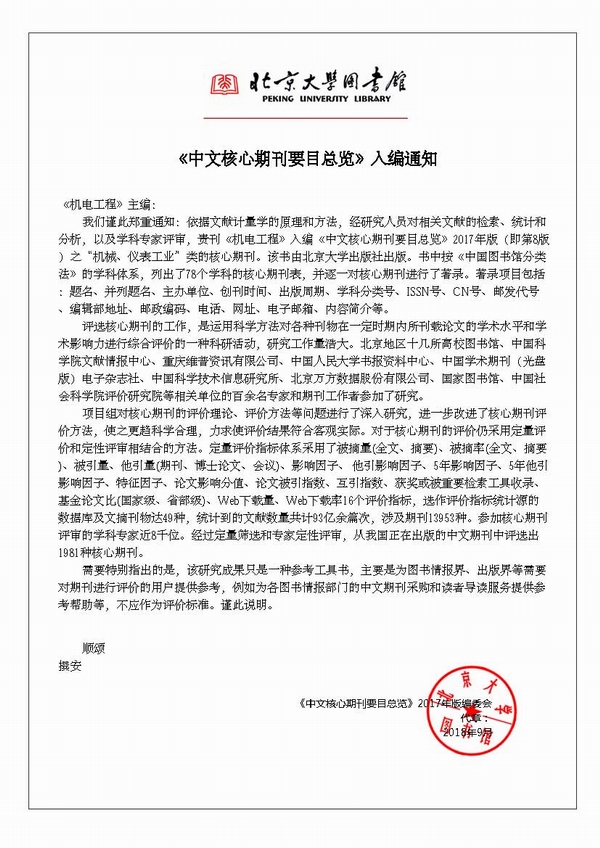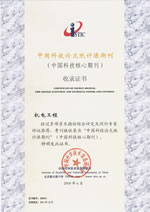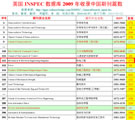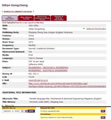
Founded in 1971 >
Chinese Sci-tech Core Periodicals >
British Science Abstracts (SA, INSPEC) Indexed Journals >
United States, Cambridge Scientific Abstract: Technology (CSA: T) Indexed Journals >
United States, Ulrich's Periodicals Directory(UPD)Indexed Journals >
United States, Cambridge Scientific Abstract: Natural Science (CSA: NS) Indexed Journals >
Poland ,Index of Copernicus(IC) Indexed Journals >
International Standard Serial Number:
ISSN 1001-4551
Sponsor:
Zhejiang University;
Zhejiang Machinery and Electrical Group
Edited by:
Editorial of Journal of Mechanical & Electrical Engineering
Chief Editor:
ZHAO Qun
Vice Chief Editor:
TANG ren-zhong,
LUO Xiang-yang
Tel:
86-571-87041360,87239525
Fax:
86-571-87239571
Add:
No.9 Gaoguannong,Daxue Road,Hangzhou,China
P.C:
310009
E-mail:
meem_contribute@163.com
Abstract: Aiming at the problem that multiple objectives in the flexible job shop scheduling problem were conflicting and difficult to solve, a flexible job shop scheduling method was designed based on Pareto and multiobjective improved jellyfish algorithm. First, a flexible job shop scheduling model was established to minimize the maximum completion time, minimum energy consumption and minimum total machine load. Second, an initialization method based on the uniform distribution of completion time and machine load was used to effectively improve the quality of the initial population. Considering the low efficiency of continuous jellyfish algorithm in solving discrete problems, a discrete jellyfish algorithm was designed, and a passive motion method based on Pareto level was proposed to further improve the search efficiency. The concept of learning was introduced to guide the population to move to the Pareto front. Finally, in order to verify the effectiveness of improved multi-objective jellyfish search (IMOJS) algorithm in solving flexible job shop scheduling, the simulation experiments were conducted to compare with NSGAII algorithm. The experimental results show that the algorithm was used to solve the NSGAII results which dominated by the MK06 example (completion time is 76, the machine load is 424, and the energy consumption is 565.8), and the quality of the solution is higher. The results show that the discrete jellyfish algorithm with uniform distribution initialization and learning guidance has uniform initial population distribution, fast convergence speed, high solution quality and strong optimization ability, which can effectively deal with multiobjective flexible job shop scheduling problem.
Key words: flexible job shop scheduling problem(FJSP); improved multiobjective jellyfish search(IMOJS) algorithm; variable neighborhood search; learning jellyfish search algorithm; Pareto; time control function








